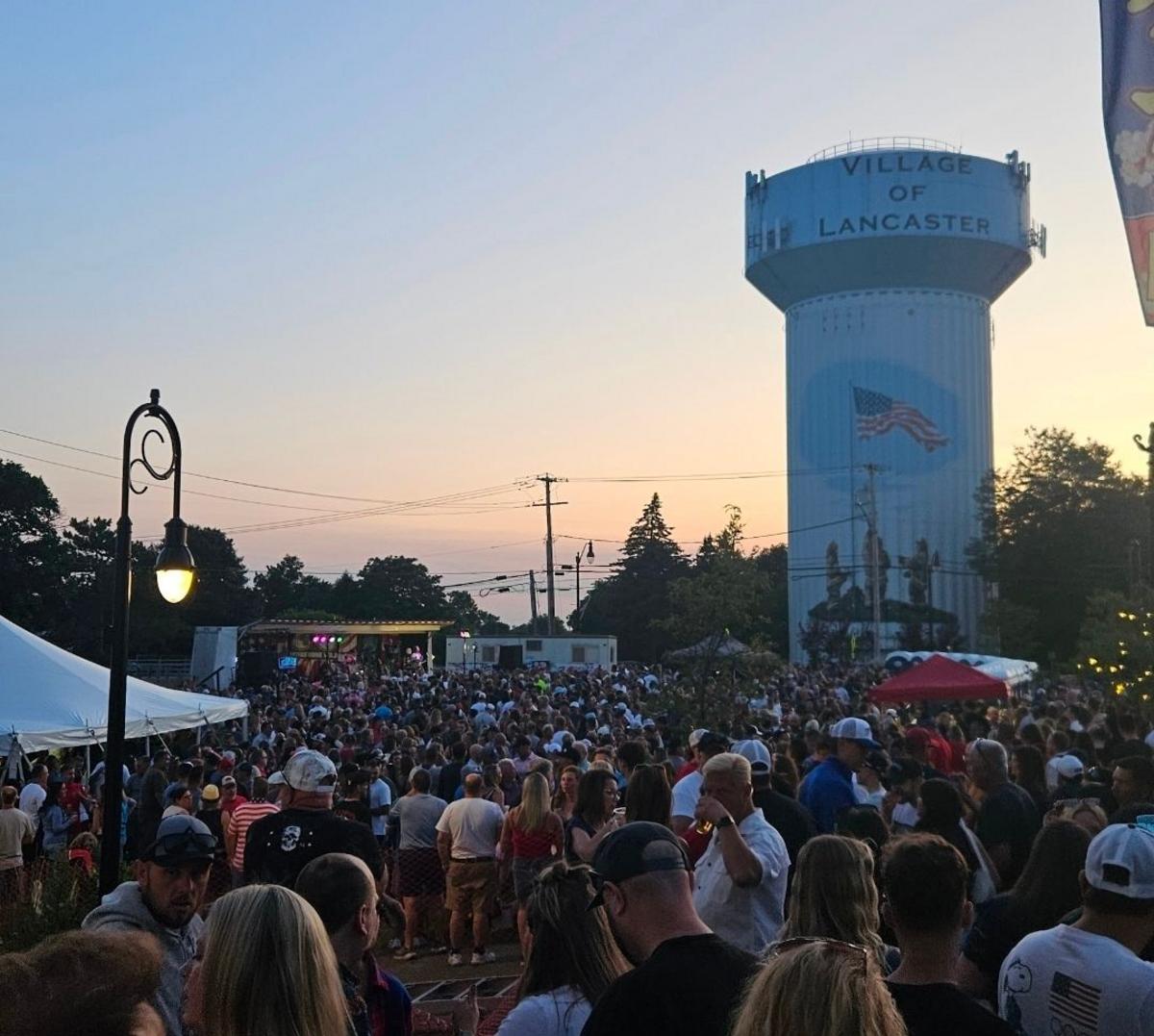from the slapp-slapp-slapp dept Donald Trump, who presents himself as a free speech champion, sure loves suing the media for their First Amendment-protected speech. CNN is a favorite target of his though these lawsuits don’t do particularly well. Back in 2022, he sued CNN for calling Trump’s lies about the results of the 2020 election “The Big Lie.” Two years ago the district court dumped that lawsuit easily. It’s taken another two years, but the Eleventh Circuit has upheld that lower court dismissal, and done so in a simple 8-page per curiam opinion from a panel that includes two Trump-appointed judges: Elizabeth Branch and Kevin Newsom. The fact that even Trump’s own judicial appointees unanimously rejected his claims demolishes any narrative that this case had merit or that “biased” courts are persecuting him. This was simply a loser case that never should have been brought. The appeals court’s analysis cuts straight to the heart of why Trump’s lawsuit was doomed from the start. The term “Big Lie” isn’t a factual claim that can be proven true or false-it’s CNN’s characterization of Trump’s conduct, protected opinion under the First Amendment. Trump’s argument is unpersuasive. First, although he concedes that CNN’s use of the term “Big Lie” is, to some extent, ambiguous, he assumes that it is unambiguous enough to constitute a statement of fact. This assumption is untenable. Although we haven’t squarely addressed the point, case law from other circuits is persuasive. In Buckley v. Littell, 539 F. 2d 882 (2d Cir. 1976), cert. denied, 429 U. S. 1062 (1977), the Second Circuit held that, by using the terms “fascist,” “fellow traveler,” and “radical right” to describe William F. Buckley, Jr., the defendant was not publishing “statements of fact.” Buckley, 539 F. 2d at 893. Rather, the court ruled, the terms were “so debatable, loose and varying that they [we]re insusceptible to proof of truth or falsity.” Id. at 894. Similarly, in Ollman v. Evans, 750 F. 2d 970 (D. C. Cir. 1984) (en banc), cert. denied, 471 U. S. 1127 (1985), the D. C. Circuit held that when the defendant called the plaintiff “an outspoken proponent of political Marxism,” his statement was “obviously unverifiable.” Ollman, 750 F. 2d at 987. Trump argues that the term “Big Lie” is less ambiguous than the terms “fascist,” “fellow traveler,” “radical right,” and “outspoken proponent of political Marxism.” But he does not explain this assertion. If “fascist”-a term that is, by definition, political-is ambiguous, then it follows that “Big Lie”-a term that is facially apolitical-is at least as ambiguous. The court’s comparison to terms like “fascist” and “fellow traveler” is particularly damaging to Trump’s case. If calling William F. Buckley Jr. a “fascist” constitutes protected opinion rather than actionable defamation, then CNN’s characterization of Trump’s election claims as a “Big Lie” clearly falls on the same side of the line. The panel essentially argues that Trump wants special protection from political criticism that no other public figure enjoys. Second, Trump’s argument hinges on the fact that his own interpretation of his conduct-i. e., that he was exercising a constitutional right to identify his concerns with the integrity of elections-is true and that CNN’s interpretation-i. e., that Trump was peddling his “Big Lie”-is false. However, his conduct is susceptible to multiple subjective interpretations, including CNN’s. Trump’s lawyers apparently thought they had found a silver bullet in the sheer volume of CNN’s coverage, arguing that more instances of the phrase somehow transformed opinion into defamation. The appeals court wasn’t buying it. If the thing is protected opinion five times, it’s protected opinion 10, 000 times. It’s just speech. Trump’s other arguments are likewise meritless. He argues that the district court erred in limiting its analysis to the five defamatory statements that he listed in his complaint. According to Trump, the district court should have also analyzed the “more than sixty instances of defamation set forth in the Notice Letter to CNN” and the “nearly 7, 700 instances in which CNN had defamed Plaintiff with the ‘Big Lie’ allegation.” Brief of Appellant at 18. Trump has not alleged that any of these “instances of defamation” refer to something other than CNN’s use of “Big Lie.” We have held that, by using “Big Lie” to describe Trump, CNN was not publishing a false statement of fact. Therefore, whether CNN used “Big Lie” one time or many is irrelevant to the question of falsity. This logic-chopping attempt reveals the fundamental weakness of Trump’s entire approach. He’s essentially arguing that repeating a protected opinion enough times magically transforms it into actionable defamation-a legal theory with no basis in the First Amendment whatsoever. Trump, whose lawyers appeared to throw every possible argument at the court, also claimed that the lower court’s denial of his attempt to amend the lawsuit and try again was an abuse of the court’s discretion. The appeals court explains to Trump’s lawyers, that’s not how any of this actually works. Trump argues that, when the district court denied his motion for leave to amend, it applied a standard that was too strict. Essential to his argument is his claim that the district court did not issue a judgment when it dismissed his complaint with prejudice. “In these circumstances,” Trump argues, “leave to amend should have been ‘granted liberally.’” Brief of Appellant at 41 (quoting Czeremcha v. International Ass’n of Machinists and Aerospace Workers, AFL-CIO, 724 F. 2d 1552, 1556 & n. 6 (11th Cir. 1984)). But Trump overlooks that, in its order, the district court indicated that “dismissal of the complaint constituted dismissal of the action.” Id. After dismissing Trump’s complaint with prejudice, the court stated that “[t]he Clerk of Court is directed to CLOSE this case and DENY AS MOOT any pending motions.” Trump, 684 F. Supp. 3d at 1277. Therefore, the district court did not abuse its discretion in denying Trump’s motion for leave to amend. Nor did the district court abuse its discretion in denying Trump’s motion for reconsideration under Rule 59. Trump asserts that the district court (1) “fail[ed] to consider the entirety of the circumstances surrounding CNN’s publication of the challenged statements” and (2) “appeared to reframe its understanding of [the clear error] standard in a manner unrelated to the case.” Brief of Appellant at 51-52, 55). “The only grounds for granting [a Rule 59] motion are newly-discovered evidence or manifest errors of law or fact.” Arthur v. King, 500 F. 3d 1335, 1343 (11th Cir. 2007) (alteration in original) (quoting In re Kellogg, 197 F. 3d 1116, 1119 (11th Cir. 1999)). Neither of Trump’s points involve newly discovered evidence or manifest errors of law or fact, and the record confirms that the district court cited and applied the correct standard. We find no abuse of discretion. This ruling represents more than just another failed Trump lawsuit-it’s a textbook example of how SLAPP suits are supposed to be handled by the courts. Trump’s case had all the hallmarks: a thin-skinned public figure using expensive litigation to punish media criticism, weak legal theories designed more to harass than to win, and endless procedural gamesmanship when the substantive claims inevitably failed. What makes this particularly significant is that the rejection comes from a panel that includes two of Trump’s own judicial appointees. This demolishes the narrative that Trump’s legal failures stem from “biased” courts rather than fundamentally weak cases. When even judges you appointed won’t buy your legal theories, that’s a pretty clear signal that the problem isn’t judicial activism-it’s your vexatious case. The broader context here matters. Trump has weaponized defamation law as a tool to silence media criticism throughout his career, filing lawsuit after lawsuit against news organizations that report unflattering truths about him. Most of these cases follow the same pattern: grandiose claims, weak legal theories, and inevitable failure in court. But the process is the punishment-forcing news organizations to spend time and money defending their basic right to engage in political commentary. There’s nothing new or novel about this case. There’s no deep need to explore some nuance of defamation law here. This is just a garden variety SLAPP suit by one of the most petulant thin-skinned presidents we’ve ever had who regularly loves to abuse the legal system to try to silence and suppress media who doesn’t praise his every move. In theory, Trump could seek an en banc rehearing by the entire Eleventh Circuit or petition the Supreme Court to review this decision, but both moves would be long shots at best. The legal principles here are well-established, the factual record is clear, and there’s no circuit split or novel constitutional question that would warrant further review. This case is a dead end, which is exactly where it belonged from the start.
https://www.techdirt.com/2025/11/20/trumps-own-judges-easily-reject-his-bonkers-lawsuit-against-cnn-for-calling-his-big-lie-a-big-lie/
Trump’s Own Judges Easily Reject His Bonkers Lawsuit Against CNN For Calling His Big Lie A ‘Big Lie’



